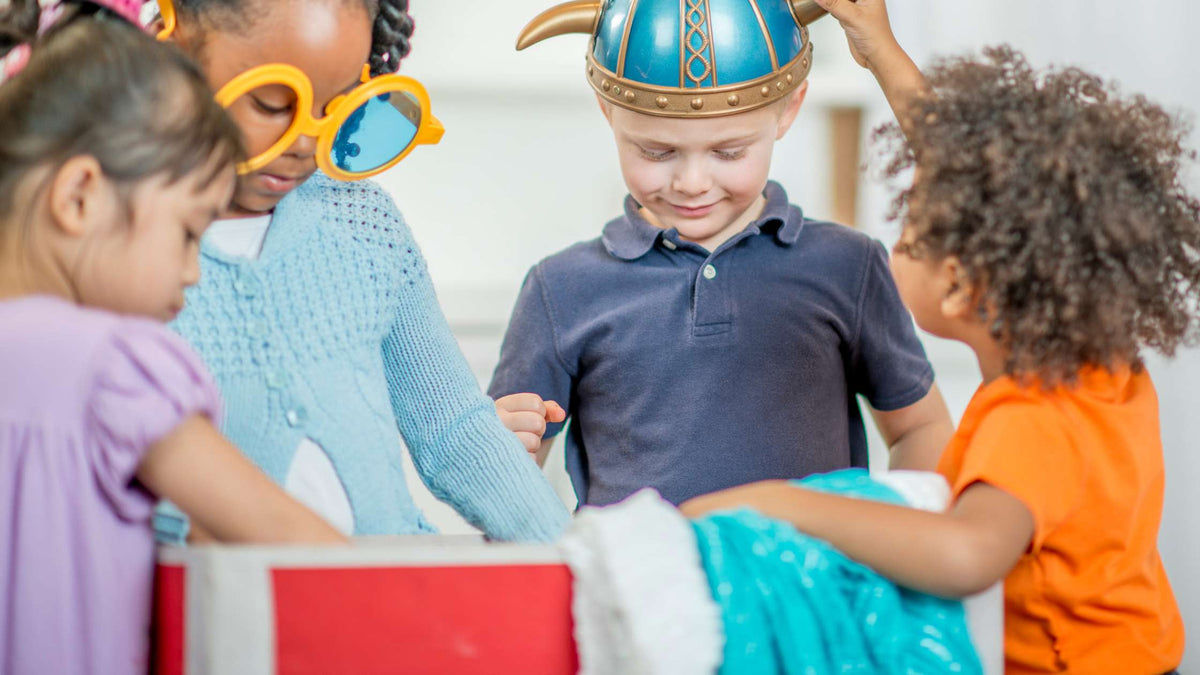
Best Toys for Ages 2-7 : Encouraging Creativity and Imaginative Play
Time to read 3 min
Time to read 3 min
Welcome back to our Stages of Play series, where we help you make sense of the toys in your house and streamline your play space! Today, we’re diving into the 2nd Stage of Play: the Preoperational Stage (ages 2–7).
If you’re new to the series, here’s a quick recap of the framework. Inspired by Jean Piaget—the psychologist who famously said, “Play is the work of childhood”—we’re using his Four Stages of Cognitive Development to guide toy selection. These stages provide insight into the kinds of toys that best engage kids at different developmental milestones.
During the Preoperational Stage, children begin to learn through functional play (repetitive actions with no specific goal) and imaginative play (pretending and creating). This is a critical time for offering toys for cognitive development that support open-ended exploration, storytelling, and real-life role play.
Avoid toys that “do the playing” for your child. Overly automated toys (with lights, sounds, or limited functionality) can turn kids into passive observers. Simple, open-ended options foster more meaningful learning and play.
Now’s a great time to take stock of your space. Use this stage as a guide:
Research shows that kids play more deeply and for longer periods when they have fewer toys available. A simplified play space helps children focus, use their imagination more richly, and form stronger cognitive connections.
Why Parents Who Love Our Piaget Stages of Play Content Will Love Our Mindful Tech Course
If you're the type of parent who thinks deeply about your child's developmental stages and the importance of age-appropriate play, you'll find our Mindful Tech Course invaluable. Just as Piaget's research shows us that children learn best when activities match their cognitive readiness, mindful tech use ensures that screen time supports—rather than disrupts—your child's natural developmental progression.
Parents who understand the critical importance of symbolic play, sensorimotor exploration, and concrete operations know that technology should enhance these stages, not replace them.
Our Mindful Tech Course gives you the tools to make intentional choices about when, how, and why to introduce technology, ensuring that digital experiences align with your child's developmental needs rather than working against them. Because if you care enough to understand the stages of play, you deserve a framework for making technology choices that honor your child's growing mind.
The best toys for this age group are those that support imaginative play, creative thinking, and real-life role play. Think blocks, dress-up clothes, dollhouses, and open-ended art supplies.
Functional play involves simple, repetitive actions that help develop motor skills and understanding of cause-and-effect—like stacking blocks, scooping, or filling and dumping containers.
Pretend play builds social-emotional skills, language development, and creativity. It allows kids to explore emotions, practice problem-solving, and act out real-world scenarios in a safe way.
At Nurtured Nest, we offer expert-led, self-paced courses for parents that support you through every stage of your child’s development—starting before birth and growing with your family.
